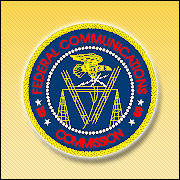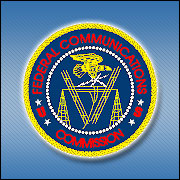
Conflicting reports are circulating about whether Google and Verizon — once bitter enemies on the subject of Net neutrality — have come to an agreement on how network operators should manage Web traffic.
Several publications, including The New York Times, The Wall Street Journal, and The Washington Post have reported that the two firms are close to negotiating an agreement under which Web publishers would be able to pay for the privilege of having their content sent faster over Verizon’s pipes. That type of arrangement would be anathema to Net neutrality advocates, a group that has counted Google among its strongest members.
However, Google issued a strong denial in the form of an email sent to several news outlets, which quote Google spokesperson Mistique Cano as saying flatly that The New York Times report is wrong, and that it has not had any conversations with Verizon about paying for carriage of Google traffic.
Verizon also issued a statement contradicting The New York Times report, calling it “mistaken,” and saying “the article is “entirely incorrect” about the business arrangement it suggests.
Google, Verizon and the FCC did not respond to the E-Commerce Times’ requests for comment by press time.
The FCC’s Role
What Google and Verizon have acknowledged is that they have been participating in talks organized by the Federal Communications Commission, along with AT&T, Skype, the National Cable Telecommunications Association and the Open Internet Coalition. This broader group has been working toward establishing rules of the road for Net neutrality in order to present a consensus package for Congress.
Verizon and Google are still continuing to actively participate in the talks, which are being held this week, according to the FCC.
It is not clear how any private agreement between Google and Verizon — if one should exist — would affect those negotiations.
If Verizon and Google were to strike such a deal, then Net neutrality could be declared dead, Mike Judd, program manager of consumer communication services at Frost & Sullivan, told the E-Commerce Times.
“The notion is that under appropriate circumstances you can in fact discriminate against certain types of content,” said Judd. “Google has been pounding the table on Net neutrality — and this agreement pulls the rug out from their feet in terms of arguments they have made in past. Obviously, when an arrangement is made in their interest, they are willing to forgo the concept.”
Advocates React
Needless to say, advocates for Net neutrality have reacted angrily to the reports of a Google-Verizon collaboration. They also aren’t especially pleased with the FCC’s efforts to reach a consensus with corporate giants.
Either path could lead to diminished protections for consumers, Art Brodsky, communications director with Public Knowledge, told the E-Commerce Times.
A Google-Verizon side arrangement reached through private conversation would not likely place the public’s interests first, he said.
As for the consensus approach, “we fear a minimalist template will be developed,” said Brodsky. “There are congresspeople who don’t want to deal with this issue, and if the biggest Internet and telecom companies waltz in with the FCC and present an agreement, they will say ‘thank you very much,’ and put a rubber stamp on it.”
Important, politically sensitive issues such as the FCC’s authority over broadband would be sidelined in this scenario, he predicted.
Not All Bad
Before dismissing either a deal between Google and Verizon or an FCC-led consensus out of hand, it would be wise to at least see what they offer, telecom analyst Jeff Kagan told the E-Commerce Times.
“Net neutrality has been discussed and hit back and forth like a tennis ball during a match for years with little progress made,” he pointed out. “That companies from opposing sides of the argument are even willing to talk and negotiate has to be a good thing at a certain level. Right now we don’t know what will come out of it.”
“It may be a case of taking the devil you know,” Jonathan L. Kramer, founding attorney of the Kramer Telecom Law Firm, told the E-Commerce Times. If a deal were negotiated among the players — even just between Google and Verizon — the outcome might be better than the current paralysis or possible legal tinkering by Congress.
Antitrust Implications
Not that any of this will materialize in the near term. The FCC would need an actual proceeding in order to adopt any industry-brokered settlement, Jonathan Askin, associate professor of clinical law at Brooklyn Law School, told the E-Commerce Times.
Also, what is in the combined best interest of Verizon and Google might not necessarily be in the best interests of the broader community or make the best public policy, he emphasized.
“If there is a private industry solution, I think the industry had best be careful that it does not run afoul of any antitrust implications,” said Askin.
“If the goal is to advocate policy reform before the FCC, that is one matter — but if the goal is to come up with an industry solution that will affect players outside the Verizon/Google conference room, then I would be concerned about the appearance of cartel-like behavior,” he said, “where the most powerful industry forces dictate the future of everyone’s Internet experience.”

























































Social Media
See all Social Media